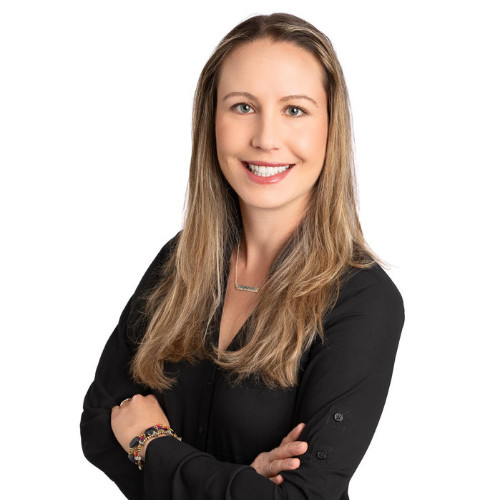
Rawaa is a 12-year-old Syrian refugee living in Lebanon. She loves school and wants to become a teacher.
Nasro, a brave, determined Somali teen, has lived more than half her life at Dadaab Refugee Camp in Kenya. She is at the top of her class and dreams of becoming a doctor.
Adebesi, an accomplished young leader from Nigeria, credits his mother’s education—and his father’s support of her education—for the opportunities he’s been afforded. He advocates for the rights of women and girls and uses technology to improve the health and leadership potential of adolescents.
Three young people. Three inspiring lives that demonstrate the goodness that comes from advancing gender equality.
The business of gender equality
August marks the 99th anniversary of women finally granted the right to vote in the United States. It’s also the 49th anniversary of the Women’s Strike for Equality, which elevated the women’s rights movement. And yet, so many decades later, women continue to face social and economic barriers that limit—or prevent—access to opportunities, not only in the United States but globally. Opportunities that might allow humanity—both women AND men—to achieve their full potential.
Want proof? Here are just a few examples:
- According to the World Economic Forum (WEF), if women play an identical role as men in the global labor market it could add $28 trillion to global GDP by 2025. Yet WEF’s Global Gender Gap Report 2018 estimates it will take 108 years to close the global gender gap at the current rate of change—and 202 years to achieve economic gender parity.
- Researchers at Harvard Business School found that while women run 30 percent of small businesses in the United States, employ 7.9 million people and generate $1.4 trillion in sales, they only receive 7 percent of venture capital funding and 17 percent of small business loan funding.
- According to the Food and Agricultural Organization, if women farmers had the same access to resources as men, there would be 150 million less hungry people in the world.
It’s statistics like these that, in the words of Mahatma Gandhi, make me want to “be the change I want to see in the world.” I believe we can change this unequal, inequitable equation, but only by raising our voices and working together.
As the global head of social impact programs at HP, I work closely with organizations including Women Deliver, Girl Rising, the Clooney Foundation for Justice, Education Cannot Wait, UN Women, and academic initiatives such as MIT Solve and National Association for Community College Entrepreneurship to help build and implement sustainable impact programs to change the equation.
Fostering partnerships rooted in shared values
At HP, building strong partnerships with values-aligned organizations is vital to our ability to optimize and scale impact. This shared-value approach—what I often call Philanthropy 2.0—enables each partner to play to their strengths to the shared benefit of each and of all. It’s not about “delivering aid” or being benefactors; it’s about sustainable impact, together, in a concerted manner.
For example, in 2018, HP and Women Deliver launched “Stories of Advocacy,” a unique 15-month partnership to support Women Deliver’s global Young Leaders Program. The program strives to empower advocates to catalyze gender equality action for girls and women in their communities. HP provides ongoing support, as well as the technology, that enable these leaders to drive their advocacy platforms forward.
At the recent Women Deliver Conference in Vancouver, B.C., I participated in a panel discussion with two of these leaders, Adebisi Adenipekun from Nigeria and Marinella Matejcic, from Croatia. The panel was moderated by HP Canada President and CEO Mary Ann Yule, and we were joined by other HP partners, Girl Rising and The International Rescue Committee, the organizations behind the powerful short film, Brave Girl Rising, which happens to star Nasro.
Listening to how these leaders and our partners use technology to enable their efforts gives us essential insight to continuously reimagine possibilities and reinvent solutions to create sustainable and scalable impact.
Such discussions are important as women remain chronically underrepresented within the technology industry. According to the U.S. Equal Employment Opportunity Commission, only 20 percent of technology executives are women. HP aims to be the destination of choice for women and underrepresented groups seeking careers in technology. It’s a commitment that is reflected in the makeup of our Board of Directors, which is the most diverse of any Fortune 100 technology company.
Harness the power to change lives and improve the world
I left Vancouver feeling even more inspired, powerful and optimistic about the future for women.
As Women Deliver Young Leader and Stories of Advocacy grant recipient Bridget Okeke Chukwudera of Nigeria recently told UN Women, “What motivates me is seeing young girls achieving their potential in life, finishing school, building a career. The need to touch lives and improve the living condition of women and girls in disadvantaged communities inspires me every day.”
Image credit: HP

Michele Malejki is Global Head, Social Impact Programs, at HP Inc.














